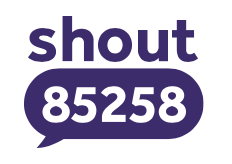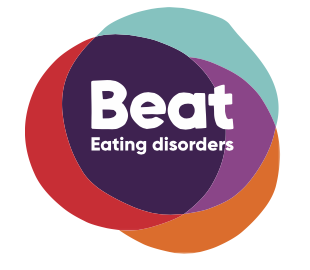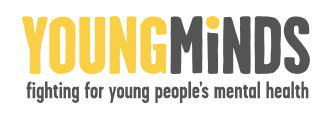Studies into postnatal depression in fathers suggest that around 1 in 5 men experience depression after becoming fathers.
Partners might develop a mental health problem when becoming a parent for similar reasons to mothers, particularly if you:
- Are a young parent without good support networks in place
- Have experienced abuse in your childhood
- Are struggling with stressful life events, like moving house, losing your job or being bereaved
- Have poor living conditions
You might also be coping with:
- Extra responsibilities around the house
- Money worries
- A changing relationship with your partner
- Lack of sleep
You can get help and support from your midwife, health visitor or your GP. Talking therapies can be accessed locally for support if you think that you have depression or anxiety. You can refer yourself. It's free and as a new parent you should be prioritised for therapy. Visit our 'Looking after yourself' page for a full list of local mental health support.
Self Help
There are lots of different types of self help available to you for mild to moderate depression, so you should be able to find an approach that suits you. One example is the gaining control of your life after having a baby booklet. This provides you with the option of exploring how you might be feeling through a workbook approach. There are also a number of online self help programmes for depression that you should be able to access via your local talking therapies service.
 You may find the Baby Buddy app useful. It contains masses of useful information about your partners physical and mental health in pregnancy and after the baby has arrived.
You may find the Baby Buddy app useful. It contains masses of useful information about your partners physical and mental health in pregnancy and after the baby has arrived.
Reading well books are available from most libraries, they promote the benefits of reading for health and wellbeing.
You can also look at at the NHS Self Help guides.
Help & Resources
Get help in your local area
Bradford and Craven
- Need urgent help? Call 0800 952 1181 if you are experiencing a mental health crisis and live in Bradford, Airedale, Wharfedale or Craven for the 24 hour First Response service.
- Bradford and Craven Talking Therapies is a free NHS service to help people manage everyday problems such as feeling low, having problems sleeping, feeling anxious and experiencing stress. You can register for any of their courses yourself, without having to go through your GP. Complete an online registration form.
Calderdale
- Need urgent help? Call 0800 183 0558 if you are experiencing a mental health crisis and live in Calderdale for the 24 hour Single Point of Access Team.
- Calderdale Talking Therapies service is a free NHS service to help people manage everyday problems such as feeling low, having problems sleeping, feeling anxious and experiencing stress. You can register yourself, without having to go through your GP. Complete an online registration form or call 01484 34370.
- Vita Health Group offer psychological therapies to adults 18 years and over registered with a GP in Calderdale.
- Visit the Healthy Minds website for a list of all mental health services and support groups in the Calderdale area.
Kirklees
- Need urgent help? Call 0800 183 0558 if you are experiencing a mental health crisis and live in Kirklees for the 24 hour Single Point of Access Team.
- Kirklees Talking Therapies service is a free NHS service to help people manage everyday problems such as feeling low, having problems sleeping, feeling anxious and experiencing stress. You can register yourself, without having to go through your GP. Complete an online registration form or call 01484 343700.
Leeds
- Need urgent help? Call 0800 183 1485 if you are experiencing a mental health crisis and live in Leeds for the 24 hour Crisis Assessment Service.
- Leeds Mental Wellbeing Service (LMWS) are here to help if you're feeling stressed, anxious, depressed or worried. Call 0113 843 4388. LMWS is open to anyone aged 17 or over, who is registered with a Leeds GP.
- Access Omnitherapy, online self-help courses immediately, without any assessment or referral. A wide range of Online Courses are available to book directly.
- Visit the Mindwell website for people living in Leeds who need support for themselves or for someone else.
-
 Leeds Dads promote positive physical and mental health for Dads across Leeds through engaging activities for them and their children such as Sunday Walks and Evening Support Sessions.
Leeds Dads promote positive physical and mental health for Dads across Leeds through engaging activities for them and their children such as Sunday Walks and Evening Support Sessions.
- Dad Matters Leeds supports Dads to have the best possible relationship with thier families. The service is through referral to Home Start Leeds by your Health Visitor or Midwife. You can also self refer.
Wakefield
- Need urgent help? Call 0800 183 0558 if you are experiencing a mental health crisis and live in Wakefield for the 24 hour Single Point of Access Team.
- Turning Point Talking Therapies If you are aged 16 years or older and are registered with a GP surgery in the Wakefield District, you can access therapies at Turning Point. Complete an online referral form or call 01924 234 860.
- Visit Wakefield Council website for a list of all wellbeing support available locally.
National support services & resources
 Find your local Andy's Man Club for a confidential space where men can be open about the storms in their lives. They run weekly, free to attend peer-to-peer support groups for men aged over 18.
Find your local Andy's Man Club for a confidential space where men can be open about the storms in their lives. They run weekly, free to attend peer-to-peer support groups for men aged over 18.
 Papyrus If you are under 35 and feel that life is not worth living any more, call Papyrus's Hopeline UK on 0800 068 41 41 from 9am to 10pm weekdays and 2pm to 10pm on weekends.
Papyrus If you are under 35 and feel that life is not worth living any more, call Papyrus's Hopeline UK on 0800 068 41 41 from 9am to 10pm weekdays and 2pm to 10pm on weekends.
 Samaritans Call free on 116 123 24 hours a day, 365 days a year. Speak to some who is trained to listen with no judgement or pressure, and help you work through what's on your mind.
Samaritans Call free on 116 123 24 hours a day, 365 days a year. Speak to some who is trained to listen with no judgement or pressure, and help you work through what's on your mind.
 SHOUT 85258 offers confidential 24 hours a day 7 days a week crisis text support for times when you need immediate assistance. By texting the word ‘SHOUT’ to 85258 you will start a conversation with a trained Shout Volunteer, who will text you back and forth.
SHOUT 85258 offers confidential 24 hours a day 7 days a week crisis text support for times when you need immediate assistance. By texting the word ‘SHOUT’ to 85258 you will start a conversation with a trained Shout Volunteer, who will text you back and forth.
 MIND Infoline 0300 123 3393 provides advice and support to empower anyone experiencing a mental health problem. Infoline provides an information and signposting service. It's open 9am to 6pm, Monday to Friday (except for bank holidays). Visit MIND for tips on parenting and mental health
MIND Infoline 0300 123 3393 provides advice and support to empower anyone experiencing a mental health problem. Infoline provides an information and signposting service. It's open 9am to 6pm, Monday to Friday (except for bank holidays). Visit MIND for tips on parenting and mental health
 DadPad A guide for new dads. Provides you with the knowledge and practical skills necessary to support you and your partner with parenthood.
DadPad A guide for new dads. Provides you with the knowledge and practical skills necessary to support you and your partner with parenthood.
 Relate If you're having problems in your family life, there are lots of ways they can help you. You might be a parent worried about your child's behaviour or how relationship problems may impact on your family.
Relate If you're having problems in your family life, there are lots of ways they can help you. You might be a parent worried about your child's behaviour or how relationship problems may impact on your family.
 Family Lives Call free on 0808 800 2222 for emotional support, information, advice and guidance on any aspect of parenting and family life. If you don’t get an answer first time, please do try again.
Family Lives Call free on 0808 800 2222 for emotional support, information, advice and guidance on any aspect of parenting and family life. If you don’t get an answer first time, please do try again.
 NSPCC advice on parenting and mental health.
NSPCC advice on parenting and mental health.
 The BBC have information on Dad's Wellbeing with top tips.
The BBC have information on Dad's Wellbeing with top tips.
 Beat is the UK’s eating disorder charity for people with eating disorders and their families. Call 0808 801 0677 from 12pm to 8pm on weekdays and 4pm to 8pm on weekends and bank holidays.
Beat is the UK’s eating disorder charity for people with eating disorders and their families. Call 0808 801 0677 from 12pm to 8pm on weekdays and 4pm to 8pm on weekends and bank holidays.
 Drinkline is an alcohol helpline providing confidential counselling, support, advice and information. Call 0300 123 1110 free on weekdays from 9am to 8pm and on weekends from 11am to 4pm.
Drinkline is an alcohol helpline providing confidential counselling, support, advice and information. Call 0300 123 1110 free on weekdays from 9am to 8pm and on weekends from 11am to 4pm.
 Read YoungMinds Parent's Guide to Looking After Yourself.
Read YoungMinds Parent's Guide to Looking After Yourself.
 Headspace App for mindfullness and meditation exercises.
Headspace App for mindfullness and meditation exercises.
 NHS Self Help guides on a range of mental health problems.
NHS Self Help guides on a range of mental health problems.
Content adapted from MIND








